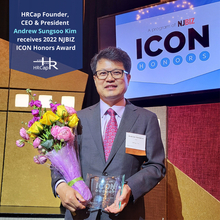
최신기사
[전문가 칼럼] 미래형 기업의 생존 비법, 사람·문화에 투자
최근 몇 년간 대다수의 인사 부서들이 리브랜딩 하고 있다. 70% 이상의 인사 담당자들과 85% 이상의 최고 경영진들이 인적자원(Human Resources)이라는 용어가 진부하다고 느낀다. 기업 운영에 필요한 인재와 정책을 관리하는 부서에서, 이제 조직에서 더 중대한 역할을 해야만 하는 부서라는 시각의 변화가 온 것이며, 인력을 단순한 자원이 아닌 조직의 핵심 자산으로 인식하고 '사람'을 더욱더 강조해야만 기업이 살아남을 수 있다고 믿는 것이다. 이어 인적자원(Human Resources)에서 인적자산(Human Capital)으로 서서히 변화되며, 인사팀에서 피플팀으로 명칭이 변경되는 추세가 가속하고 있다. 그 외에 탤런트팀, 피플앤컬처팀, 인재확보및육성팀, 직원경험팀 등 새로운 팀명으로 운영되고 있다. 그렇다면 인사팀과 피플팀의 운영은 과연 어떤 차이가 있고 기업에 어떤 영향을 미치고 있을까? 우선 이는 단순한 명칭 변경이 아닌, 조직 내에서 인사의 기능과 역할 그리고 기업이 추구하는 비즈니스 방향 및 가치 또한 전략적으로 반영되고 있다는 것이다. 인사 담당자는 관리에 집중해 정책·절차에 중점을 두고 발생하는 문제에 대응하는 수동적인 역할을 하지만, 피플 담당자들은 가치 중심이며 직원 경험에 집중하고 조직 문화에 알맞게 전략적이며 예방적인 방식으로 문제를 파악하고 접근한다. 또한 피플 리더는 관리 업무 어드민 역할이 아닌 비즈니스 파트너 역할을 한다. 비즈니스 성과에 필요한 인재와 정책을 관리하는 것이 아니라, 핵심 인재와 조직문화를 통해 기업 숙제를 새롭게 풀어가며 성공시키는 시각으로 조직을 함께 운영하며 변화시키는 것이다. 거래적 사고방식이 아닌 전략적 사고를 가지며, 직원들의 정책 준수 관리보다 직원 참여·교육을 통해 더 성장하고 발전할 수 있는 업무 환경을 만드는 데 더 큰 중점을 두는 것이 핵심 포인트다. 즉 미래지향적인 피플 리더는 배움과 변화 중심의 자세를 갖추고 있다. 산업 동향을 함께 학습하며 비즈니스를 깊게 이해해 최고 경영진들과 함께 사업 숙제를 풀어갈 수 있는 통찰력과 추진력이 필요한 것이다. 데이터 리터리시를 강화해 데이터를 활용하며 분석한 후 객관적인 의사 결정을 내릴 수도 있다. 기술 발전과 AI 발달에 힘입어 불필요한 정책을 없애며 복잡한 프로세스를 단순화시켜, 업무가 아닌 사람에 더욱 많은 시간을 투자해 집중할 줄 아는 것이다. 마지막으로 피플팀은 인재 발굴 및 조직 문화에 중점을 두고 있다. 기업의 성장은 인력 확보에서 멈추지 않고 어렵게 채용한 인재를 시장동향에 맞게 육성하고 시대에 맞게 유지하며, 핵심 인재를 조직문화에 끼워 맞추는 게 아니라 이들이 기업문화에 기여할 수 있게 힘을 실어주는 것에 달려 있다. SHRM 연구에 따르면 피플 리더 94%가 직원 유치와 유지를 위해 건강한 조직 문화를만드는 것에 힘쓰고 있다고 한다. 영향력 있는 핵심 인재를 확보하고 채용하는 역할을 하는 리크루터들의 능력 또한 더 중요해진 것이다. 글로벌 서치 및 헤드헌팅 전문기업인 HRCap또한 지난 3년간 고객 파트너사로부터 인사관련 채용 의뢰가 역대급으로 많았고 맞춤형 교육 및 리더십 육성 프로그램을 제공하는 데 전념했다. 사람은 결국 기업의 가장 큰 자산이며 문화는 조직의 고유 브랜드이기에, 이제는 사람과 문화가 같이 번창할 수 있는 기업만 성장하며 단단하고 가치롭게 성공할 수 있다는 점을 깊이 되새겨보길 바란다. 스텔라 김 HRCap, Inc. 전무 (SVP, Head of Americas & Chief Marketing Officer) ━ [Expert Column] Futuristic Companies Survive by Investing in People and Culture Become a Business Partner, Not an Administrator People Are the Company’s Greatest Asset, Culture Defines Their Unique Brand HR departments across the world have rebranded. Over 70% of HR Leaders and 85% of the C-suites find the term “Human Resources” to be outdated. The perception of the HR department has shifted from simply managing employees and enforcing compliance to one that is expected to play a far more critical role within the organization. Companies now believe they can only survive by focusing on the people and recognizing them as the organization’s biggest assets, not just resources. This has led to a gradual shift from “Human Resources” to “Human Capital,” accelerating the rebranding of the HR Team to the People Team. Other organizations have also rebranded to the Talent Team, the People and Culture Team, the Talent Acquisition Team, and the Employee Experience Team. That said, what are the key differences between HR Teams and People Teams, and how are the differences in their operations impacting organizations? To start, this is not a simple name change, but a strategic reflection of both the function of HR and the vision and values the company pursues. While HR Leaders focus on processes and policies, acting passively when issues arise, People Leaders are instead value-driven and prioritize the employee experience, proactively approaching challenges in a way that highlights and strengthens the organizational culture. More importantly, People Leaders act as strategic business partners rather than logistic administrators. Instead of merely managing talent and policies essential to achieving business performance, they collaboratively drive organizational growth by resolving business challenges through investing in critical talent and building a unique corporate culture. Successful organizations adopt a strategic mindset over a transactional one and know how to create work environments where employees are actively engaged and progressively challenged for greater collective growth. In other words, futuristic People Leaders have a strong sense of learning agility and are genuinely open to change. They strive to understand the core business and proactively gain insight from industry trends to strategically partner with hiring executives in futureproofing the company. People Leaders build on their data literacy and leverage data to make objective decisions. They do not shy away from technological advancements and can apply AI to eliminate unnecessary policies and simplify complex processes, freeing up more time to focus on people rather than tasks. Lastly, the People Team invests in talent acquisition and organizational culture. A company’s growth does not stop at effective hiring but extends into continuous training and sustainable retention of top talent that can navigate evolving market trends and varying generational differences. Companies must empower critical talent to contribute to the evolving organizational culture, rather than fitting them into the pre-defined corporate culture. A SHRM study indicates that 94% of People Managers believe that a strong culture is critical for helping to hire and retain employees. As such, the recruiters’ ability to identify and hire critical talent is becoming increasingly crucial in the War for Talent. HRCap, a Top 10 Global Executive Search & HR Consulting firm, has received the highest number of HR leadership requisitions over the past three years and expanded our service offerings to provide customized training and leadership development programs to meet our clients’ unique needs as their strategic business partner. People are the company’s greatest asset, and culture defines their unique brand. Only businesses that know how to truly invest in their people and culture can achieve scalable growth and valuable success. Stella H. Kim, SPHR HRCap – SVP, Head of Americas & Chief Marketing Officer 전문가칼럼 미래형기업 생존 HR 인사 HRCap Stellakim 스텔라김 에이치알캡 HRCAP recruit 채용 인재 구직
2024.09.18. 21:48

[전문가 칼럼] 미래형 핵심인재는 스펙 아닌 퍼스널 브랜드 강화에 집중
기업들이 겉으로 말하지는 않지만, 요즘 채용할 때 중요하게 생각하는 것은 과연 무엇일까? 바로 추천된 후보자에 대해 '스펙이 얼마나 좋나요'가 아니라, '사람이 어떤가요'라고 더 많이 물어본다는 점이다. 전 직장에서의 성과보다는 이직 사유와 지원 동기를 궁금해하며, 후보자의 학력·경력보다 인품과 자세를 검증해주길 원한다. 책임감은 강한지, 도덕성은 높은지, 성실하고 진솔한 태도를 가졌는지, 소통능력과 대인관계는 좋은지 여러 차례 스크리닝 및 평판 조회를 통해 파악해달라고 요청한다. 지금까지 많은 기업이 후보자의 스펙(학력과 경력, 또한 해당 분야에서의 경험)을 중요시해 서류심사 때 인터뷰 진행 여부를 결정하곤 했다. 물론 적합한 경력과 유사한 경험을 파악하고 검증하면 채용 후 바로 실무에 투입할 수 있다. 다만 기술이 빠르게 발전하고, 조직 문화가 글로벌·현대화하면서 이제 후보자의 전문 지식과 적합성만 보고 채용하기엔 너무 부족하며 위험한 시대가 온 것이다. 구글 채용 조사에 따르면 이력서에 돋보이는 후보자의 이전 경험은 3%의 정확도로만 미래의 업무 성과를 예측할 수 있다고 한다. 면접 질문과 채용 절차를 개선해 경험보다 태도, 경력보다는 잠재력을 파악해야 기업에 꼭 필요한 인재를 뽑을 수 있는 셈이다. 딜로이트 인사이트 연구 또한 글로벌 기업의 92%는 하드 스킬(Hard Skill)보다는 소프트 스킬(Soft Skill)을 더 중요하게 여기며, 84%는 면접 시 후보자들이 소프트 스킬을 발휘할 수 있어야 한다고 밝혔다. 하드 스킬은 특정 직무나 업무를 수행하는 데 필요한 기술적 능력이며, 학습을 통해 습득할 수 있고 직무기술서에 명확히 기재돼 있다. 반면 소프트 스킬은 개인의 성격·태도·가치관과 관련되며 타인과 일하며 상호작용하는 방식을 나타내는 대인관계 스킬이다. 글로벌 서치 및 헤드헌팅 전문기업인 HRCap또한 다양한 면접 질문과 자체 진단 툴을 활용해 후보자가 '7 HRCap Non-Negotiable Soft Skills'를 가지고 있는지 파악한다. 조직문화와 적합한 인재인지, 기업이 원하는 사람인지 꼼꼼히 확인한 후 추천하고 있다. (1) Integrity-도덕성과 윤리 (2) Self-Awareness–자기인식 (3) Learning Agility–학습민첩성 (4) Strategic Skills–전략적 스킬 (5) Analytical Ability–분석 기술 (6) Empathy–공감 능력 (7) Intrinsic Drive-내재적 동기와 끈기 수많은 미국 대기업 그리고 스타트업들이 경력과 하드 스킬 보다 소프트 스킬에 주목하며 채용 기준과 프로세스를 바꾸고 있다. 즉 미래형 기업들은 직무 경험과 지식이 부족하더라도 후보자가 자기인식이 강하고 학습민첩성이 높다면 과감하게 뽑고 투자한다. 이런 핵심 인재를 통해 기업이 지속해서 성장하고 발전하며 혁신을 주도할 수 있기 때문이다. 또한 인공지능(AI)이 발달하고 자동·가속화 한다 해도, 인간의 소프트 스킬을 결코 대체할 수 없기 때문에 개인의 인품과 잠재력에 더욱더 집중해 투자하는 것이다. 스펙을 꾸준히 쌓아가는 것도 중요하지만, 이제는 7가지 소프트 스킬로 내면을 갈고 닦아 본인만의 퍼스널 브랜드를 가꾸는 것은 어떨까. 어느 조직에서든 구성원 모두가 꼭 한 번 함께 일해보고 싶어하는 그런 핵심인재가 되어보자. 스텔라김 HRCap, Inc. 전무 (SVP, Head of Americas & Chief Marketing Officer) ━ [Expert Column] Futuristic Critical Talent Focuses on Strengthening Personal Brand, Not Just Qualifications Attitude Over Experience, Potential Over Performance 7 HRCap Non-Negotiable Soft Skills What do hiring organizations prioritize off the record? Companies are asking more questions about what the candidate is like as a person rather than how strong their qualifications may be. They are more focused on probing why the candidate transitioned between jobs and what motivated them to apply, more so than their performance in past roles. They place a higher emphasis on deeply vetting the candidate’s character and attitude, more than verifying their education and experience. They request to conduct multiple screenings and various reference checks to validate the candidate’s strong sense of responsibility, ethics, sincerity, and interpersonal skills. To date, many hiring organizations have prioritized screening the candidate’s qualifications (education, work history, and relevant experience in the field) to determine whether or not to proceed with an interview. Candidates with prior expertise and relevant experience may indeed require less training and can add value more quickly upon hire. However, it is no longer enough to hire solely based on expertise and fit alone, given the speed of technological advancements and the complexity of the globalization and modernization of corporate cultures. According to Google’s hiring research, a candidate’s work experience on a resume predicts future job performance with only 3% accuracy. As such, interview questions and hiring processes must be improved to assess attitude over experience and potential over performance to truly screen for and employ critical talent. A study by Deloitte Insights also found that 92% of global organizations value soft skills over hard skills, and 84% believe that candidates must possess and demonstrate such soft skills throughout the hiring process for an effective hire. Hard skills are technical skills that can be acquired through training and development and are outlined in the job description as part of the role requirements. On the other hand, soft skills are interpersonal skills that relate to an individual’s personality, attitudes, and values that may affect and reflect how they work and interact with others. HRCap, a Top 10 Global Executive Search & HR Consulting firm, leverages strategic interview questions and assessment tools to evaluate if candidates have competency in the “7 HRCap Non-Negotiable Soft Skills.” We thoroughly screen candidates on the following 7 skills to ensure they are a strong cultural fit before recommending them to our client organizations: 1. Integrity 2. Self-Awareness 3. Learning Agility 4. Strategic Skills 5. Analytical Ability 6. Empathy 7. Intrinsic Drive Many U.S. conglomerates and startups have already changed their hiring criteria and recruiting processes as they prioritize soft skills over hard skills. Forward-thinking organizations are thereby willing to hire and invest in candidates with a strong sense of self-awareness and learning agility, even if they lack sufficient expertise and relevant experience. Such organizations truly believe that they are only able to continuously grow, transform, and lead innovation by investing in the potential of such critical talents, especially since artificial intelligence will never be able to replace human soft skills. While it is important to continuously strengthen our qualifications on our resumes, we must also hone our unique personal brand by consistently developing the 7 HRCap Non-Negotiable Soft Skills. Let us strive to be that futuristic critical talent that everyone would truly love to work with. Stella H. Kim, SPHR HRCap – SVP, Head of Americas & Chief Marketing OfficerHRCap stellakim 스텔라김 hr 전문가칼럼 에이치알캡 퍼스널브랜드 채용 인재 구직 구인 recruit recruiting HRCAP
2024.08.14. 21:55

[전문가 칼럼] 경력정체 극복비법은 바로 사명감
누구나 한번쯤은 본인의 진로에 대해 진지하게 재고해 본 경험이 있다. 매일 늦게까지 야근해도 업무의 끝은 왜 보이지 않는지, 매달 나름 최선을 다하지만 성과는 왜 여전히 미달인지, 매년 평가는 좋은데 승진기회는 왜 오지 않는지 답답했던 적이 있을 것이다. 이 일은 과연 나에게 맞는 일인지, 내가 좋아하는 일인지, 정말 의미가 있는 일인지 의문을 품을 때도 있다. 전미경제연구소의 최근 연구에 따르면 74%의 각종 산업, 직책 및 직급의 직원들이 경력 정체기를 경험한다고 밝혔다. 로버트 하프도 66%의 직원들이 팬데믹 이후 경력정체를 더 경험하게 됐고, 오라클 또한 75% 이상이 본인들의 진로 성장에 상당한 걸림돌을 느끼고 있다고 전했다. 그렇다면 이와 같은 경력정체(Career Plateau)는 과연 무엇이며, 왜 발생하는 것일까? 경력정체는 개인이 더이상 발전하거나 승진할 방법이 없다고 의식하며, 조직 내에서 수평적 및 수직적 경력상승이 어렵다고 느끼는 시점을 말한다. 개인 스스로의 노력과 성취욕구가 부족해서, 조직구조적 한계로 경력관리와 승진이 어려워서, 또한 불안정한 경제상황과 구조조정 및 합병 등으로 이동이 불가능해서 생기는 다양한 원인들이 있다. 지루함, 좌절감 또는 그 직업에 대한 불만족도 함께 따라오기도 한다. 다만 경력정체는 개인이 의식하며 느끼는 부분이 절대적으로 크기 때문에, 오히려 일의 의미를 어디에 두는가에 따라 효율적으로 극복할 수 있다. 일의 의미는 돈을 벌기 위한 수단인 직업(Job), 자기개발을 위한 경력과정(Career), 그리고 비전이 제일 중요한 사명(Calling)으로 부여할 수 있다. 업무를 처리하는 시간과 노력에 대한 정당한 보상을 받는 것이 중요할 수 있고, 꾸준히 배우고 자기계발하여 사회적 지위와 전문성을 얻는 게 목적일 수 있으며, 일을 통해 선한 영향력을 행사하며 성취감과 보람을 느끼는 게 삶의 활력일 수 있기 때문이다. 글로벌 서치 및 헤드헌팅 전문기업인 HRCap 인재풀 조사에 따르면, 경력정체기를 경험했던 이들은 회사생활이 무의미하고 반복적으로 느껴졌고, 이직준비를 위해 더 많이 결근하고 결국 퇴사를 했다고 한다. 물론 일을 하면서 정당한 보상이 따라야 하며 돈을 벌어야 생계를 유지할 수 있다. 또한 지속변화하는 현대사회에서 꾸준히 배우고 도전해야만 성장하며 성공할 수 있다. 다만 돈을 벌기 위해 일하고, 성과만 중요하게 여긴다면 일의 과정보다는 결과에 더 집중하기 때문에 항상 긴장하며 불안하고 불만스러울 수 있다. 이에 반해 사명감을 가지고 일하는 이들은 열정적으로 그 일의 미션에 더 큰 초점을 두기 때문에 매사에 본인의 시간과 에너지를 더 영향력 있고 의미있게 활용하려고 한다. 이들은 은퇴를 기대하는 자세 또한 다르다. 업그레이드된 본인의 지식과 경력과 자산을 사회에 기여하고 다음 세대에 환원하려고 하기 때문이다. 즉 같은 일을 하고 있더라도, 조금만 생각을 바꿔보면 직업의식이나 경력관리 목적, 혹은 특별한 사명감을 갖고 일할 수 있는 셈이다. 만약 오늘도 경력정체를 느끼고 있다면, 그 일을 바라보는 관점을 바꿔보는 것은 어떨까? 결국 사명을 감당하기 위해 일에 임하는 결단의지의 마음가짐이며, 그러면 곧 천직(vocation)을 찾게 될 것이다. 스텔라 김 HRCap, Inc. 전무 (SVP, Head of Americas & Chief Marketing Officer) ━ [Expert Column] The Key to Overcoming Career Plateau is Finding Our Calling Search for the Calling, Not Just the Next Job or Career Growth At one point or another, we have all seriously reconsidered our career path. We get frustrated about why the task is never-ending even with daily overtime, why the monthly KPIs are never met despite putting in our best efforts, and why we are not considered for promotions with strong annual performance reviews. We often question whether this is the right job for us, whether we genuinely enjoy what we do, and whether our work is indeed fulfilling and meaningful. A recent study by the National Bureau of Economic Research found that 74% of employees across industries, job functions, and levels have experienced a career plateau. According to Robert Half, 66% of employees have experienced more stagnation since the COVID-19 pandemic, and Oracle’s study also shows that 75% of global employees feel stuck in their professional growth. Then what is a career plateau, and why does it happen? A career plateau is when an individual feels stuck and believes there are no advancement opportunities, both laterally and vertically, within an organization. Lack of individual commitment or sufficient drive, limitations within the organization, changes in corporate structures from reorganizations and mergers, and unstable economic conditions may all lead to career plateaus. Discouragement, disengagement, and dissatisfaction with the job often follow as well. However, a career plateau is largely a matter of personal perception and mindset. We can overcome a career plateau by intentionally defining and placing our meaning of work. Work can be defined and approached in various ways. If we work to simply make money, then it is a job. If we prioritize learning and self-development, then it is a career. If we tie our core values and mission into our work, then it is a calling. Many prioritize being fairly compensated for one’s time and effort, while others focus on strengthening one’s subject expertise and personal branding through continuous learning. Some focus on finding purpose and a sense of fulfillment through their work. According to the global talent pool survey conducted by HRCap, a Top 10 Global Executive Search & HR Consulting firm, those who experienced a career plateau reported their work life felt meaningless and repetitive, leading them to higher absenteeism and eventually resignation to focus on making job or career changes. Indeed, we all need to be fairly compensated for our work as we need to make a living. We must also continuously learn and competitively grow to keep up with the ever-evolving market trends. However, working just to earn a wage and focusing only on the outcome rather than the actual progress can lead us to constant tension, anxiety, and dissatisfaction. On the other hand, those who work with a sense of calling focus on the mission at hand exerting their time and energy in a more meaningful and impactful way. Their perception of retirement also differs, as many eagerly await to give back their expertise, experience, and assets to the greater society and the future generation. In other words, each person may treat the exact same role as a job, career, or calling, depending on their mindset. If we are still experiencing a career plateau, let us pause to reflect and change our perspectives of why we engage in work. Determination to find and advance our calling will lead us to our ideal job, our fulfilling career, and ultimately – our vocation. Stella H. Kim, SPHR HRCap – SVP, Head of Americas & Chief Marketing Officer 전문가 칼럼 경력정체 극복비법 경력정체 극복비법 이후 경력정체 경력관리 목적 스텔라김 HRCAP
2024.02.14. 21:45

HRCAP 김성수 대표, ‘아이콘 아너상’ 수상
뉴저지주에 있는 글로벌 서치펌 HRCap 김성수 대표가 한인으로는 최초로 ‘NJBIZ 아이콘 아너상(NJBIZ ICON Award)’을 수상했다. 뉴저지 최고의 비즈니스 저널인 NJBIZ는 28일 뉴저지주에서 분야별로 특별한 성과를 내고 영향을 미친 60세 이상 기업인들을 선정해 수상하는 ‘2022 NJBIZ ICON Honors Award Program’ 행사를 개최했다. 이 프로그램은 2017년부터 시작해 매년 30~50명 정도를 ‘아이콘(ICON)’으로 선정해 수상해왔는데, 한인 기업인으로서는 이번 김 대표의 수상이 처음이다. 김 대표는 수상 소감을 통해 “한국인의 도전정신과 열정을 미 주류사회에 널리 알리는 계기가 되기를 바라며, 글로벌 휴먼네트워커로서의 책무와 역량강화에 더욱 매진하겠다”며 “주류사회에서 당당하게 동반자의 역할을 할 수 있다는 자신감과 저력을 확인하는 계기가 되었고, 특히 고급인재 일자리 창출 및 지역사회 네트워크 활성화에 기여한 공로로 수상을 해서 더욱 뜻깊다”라고 말했다. HRCap은 지난 2000년 뉴저지주에서 설립됐는데 현재 한국에 지사를 두고, 글로벌 기업들의 고급인재 채용 및 HR 솔루션을 제공하고 있다. 박종원 기자HRCAP 김성수 대표 NJBIZ NJBIZ ICON Award 2022 NJBIZ ICON Honors Award Program 아이콘 아너상
2022.06.29. 21:25
